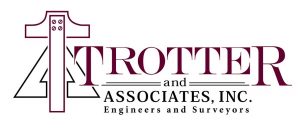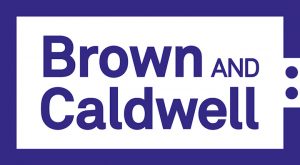 Join CSWEA
Join CSWEAAward Description
The Gus H. Radebaugh Award is presented each year for the best paper presented at the Annual Meeting in that year by a Central States member.
The award is named for Gus H. Radebaugh as a memorial to his fine, loyal service to Central States. Gus Radebaugh was manager of the Urbana-Champaign Sanitary District, Urbana Illinois. He was the first Secretary of Central States, 1927-30.
Nomination Policy and Procedures
1. The Radebaugh Award Subcommittee, formed under the General Awards Committee, shall be responsible for selecting a nominee for the Radebaugh Award.
2. The Radebaugh Award may be made by the Association each year if in the opinion of the Radebaugh Award Subcommittee, any member of the Association had presented a paper worthy of the Award at the Association Annual Meeting.
3. Subcommittee Membership:
a. The Subcommittee shall consist of three members, including one member from each of the State Sections of the Association. The Chair shall be from the Host State.
b. Whether an award is recommended or not, the Radebaugh Award Subcommittee shall submit a report each year to the General Awards Committee.
4. Eligibility for Award:
a. The Radebaugh Award shall be made to the author(s) of a deserving paper presented at an Annual Meeting of the Association.
b. For papers presented at the Annual Meeting to be eligible for the Award, the author(s) must submit eight (8) copies of the paper (or one electronic copy in PDF format) to the Association Executive Director within 30 days of the close of the Annual Meeting.
c. In case of multiple authorship, the Award shall be shared equally by authors, who are members of the Association, i.e., each Association member author shall receive a plaque.
5. The Subcommittee will evaluate each paper based on the criteria given below, applying up to the allowable points indicated. The sum of the allowable points is the final rating of the paper (100 points is maximum in totaling the allowable points given).
| Maximum Allowable Points | Maximum Allowable Points |
|---|---|
| Contribution to the science because of: | |
| New information obtained by the author's experimental or theoretical research. | 65 |
| New or advanced theory of technique of design presented by the author. | |
| Improved methods of construction proposed by the author. | |
| Improved methods of operation proposed by the author. | |
| Improved equipment proposed by the author. | |
| Detailed information not previously available to the profession, on a construction project of considerable magnitude, a production process or method of operation. |
|
| Detailed information presented on economic questions, which are of interest to the profession, such as cost of construction and operation, evaluation and rate setting. |
|
| Originality of subjects. | 10 |
| Amount of work expended to obtain data or information. | 15 |
| English composition and clarity of the presentation. | 10 |
Total | 100 |
6. It shall be the responsibility of the Radebaugh Award Subcommittee to prepare a brief statement indicating the merits of the paper selected for the Award. This statement shall be submitted, no later than December 1, to the Chair of the General Awards Committee by the Radebaugh Award Subcommittee Chair in making the recommendation for the Award.
7. The Award shall consist of a Plaque(s) to be presented at the next Association meeting.
“Transformation of PFAS During Pyrolysis of Biosolids”
Patrick McNamara, Black & Veatch/Marquette University
Zhongzhe Liu, California State University – Bakersfield
Taryn McKnight, Eurofins Environment Testing America
Eric Redman, Eurofins Environment Testing America
| 2023 | Not Awarded |
| 2022 | Not Awarded |
| 2021 | Not Awarded |
| 2020 | "Doubling Down on Phosphorus" Rachel Lee, Mikaela Vergin, Matt Seib, Aaron Dose |
| 2019 | “A Study on the Effects of Side Streams on Phosphorous Removal” Robert S. Trotter and Elizabeth Heise |
| 2018 | "A Simple and Energy Efficient Approach to Cleaning Biogas" Sid Aurora, Lindsey Busch, Sean Snyder and Rudy Kilian |
| 2017 | “SNRP 101 – Fond du Lac WWTP Lab Experiences” Autumn Fisher, Jeremy Cramer, Eric Lynne |
| 2016 | Steven R. Reusser, Alan L. Grooms, Aaron P. Dose |
| 2015 | Jeremy Bril, Jane Carlson, John Leonhard |
| 2014 | Jared Greeno, Greg Paul, David Raskowic |
| 2013 | Chris Wilson and Jennifer Hindel |
| 2012 | Alan Grooms |
| 2011 | Navaneethan Navarathnam, Scott Royer, Peter R. Topczewski & Daniel Zitomer |
| 2010 | Steven R. Reusser |
| 2009 | Not Awarded |
| 2008 | Jay Kemp, Dennis Egge & Daniel Zitomer |
| 2007 | Tom Vik & Mark Surwillo |
| 2006 | Not Awarded |
| 2005 | Steve Reusser |
| 2004 | George Sprouse |
| 2003 | - |
| 2002 | Stephen Greenwood, Claude Anderson, Mike Reith, Ted Stein |
| 2001 | Steven Reusser, Greg Zelinka |
| 2000 | D. Busch, M. Urbancic |
| 1999 | J. A. Bilgo, E. D. Fessler, K. E. Kaszubowski, R. F. Peschel |
| 1998 | J. J. Marx |
| 1997 | Kirankumar Topudurti |
| 1996 | David A. Rein |
| 1995 | James L. Daugherty, Thomas E. Vik, David T. Redmon |
| 1994 | No Nominee |
| 1993 | Eric R. Lecuyer |
| 1992 | James R. Kirk |
| 1991 | Paul MacBerthouex |
| 1990 | Steven R. Reusser |
| 1989 | Paul Mac Berthouex, D. Robert Gan |
| 1988 | J. Willard DeBauche |
| 1987 | Glen T. Daigger |
| 1986 | Brooks Newbry,Diane Taniguchi-Dennis, Tom Sigmund |
| 1985 | Sara J. Ethier, Conrad P. Straub |
| 1984 | Thomas E. Vik, Dennis J. Lammers, Daniel L. Roder |
| 1983 | George B. Vania, Dennis R. Martenson, Nadim A. Shamat |
| 1982 | John S. Hunter, III |
| 1981 | Richard R. Dahl, Sam L. Claassen |
| 1980 | Nancy H. Pelt-Lynche, Walter J. Maier |
| 1979 | William Denniston, Jr., Bruce Snyder, Gene Lukasik |
| 1978 | Jan Yesilani |
| 1977 | Phil Budde, Paul Nehm, William C. Boyle |
| 1976 | M.J. Semmens,J.T. Wang, A.C. Booth |
| 1975 | J.W. Lingel |
| 1974 | Parviz Amirhor |
| 1973 | Harold T. Stanlick |
| 1972 | A. E. Zanoni, R. J. Rutkowski |
| 1971 | A. W. Banister |
| 1970 | Robert C. Ansani, Timothy J. McAloon |
| 1969 | Walter J. Maier |
| 1968 | Lyle Smith, Lawrence Breimhurst |
| 1967 | Russell Susag |
| 1966 | Walter K. Johnson, George J. Schroepfer |
| 1965 | L. S. Kraus, Edwin B. Fall |
| 1964 | A. W. Banister |
| 1963 | Joseph T. Ling |
| 1962 | Robert T. Wolf |
| 1961 | James J. Anderson |
| 1960 | George J. Schroepfer, Norman R. Ziemke |
| 1959 | W. W. Mathews |
| 1958 | Frank J. McKee |
| 1957 | Henry B. King |
| 1956 | Charles Griffith |
| 1955 | Philip F. Morgan |
| 1954 | Henry B. King |
| 1953 | George J. Schroepfer |
| 1952 | Paul E. Langdon |
| 1951 | Norval E. Anderson |
| 1950 | Philip F. Morgan |
| 1949 | George J. Schroepfer |
| 1948 | Al F. Bartsch |
| 1947 | L. S. Kraus |
| 1946 | Donald Bloodgood |
| 1945 | No Meeting Due to War |
| 1944 | No Award Given |
| 1943 | Samuel A. Greeley |
| 1942 | K. L. Mick |
| 1941 | Walter A. Sperry |
| 1940 | C. C. Ruchhoft |
| 1939 | William A. Dumdas |
| 1938 | C. N. Sawyer, M. Starr Nichols |
| 1937 | W. D. Hatfield |

To provide a Water Environment Federation (WEF) organization (Illinois, Minnesota, Wisconsin) offering multiple opportunities for the exchange of water quality knowledge and experiences among its members and the public and to foster a greater awareness of water quality achievements and challenges.




